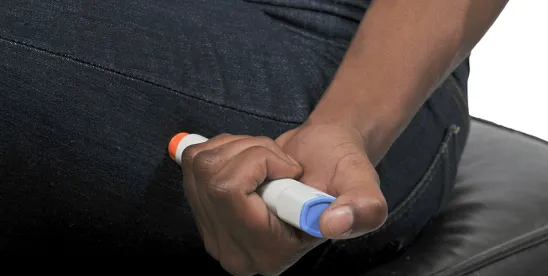In Insulet Corporation v. EOFlow Co., Ltd. et al., after a month-long jury trial, a federal court in Boston dropped the hammer on an insulin patch pump producer for misappropriating the trade secrets of its competitor. The jury found that EOFlow, a South Korean company, its U.S. subsidiary, and several individual defendants, including former employees of Insulet, misappropriated several different categories of Insulet trade secrets. The juryawarded Insulet $452M in damages for the misappropriation, though the court later reduced that amount to $59.4M when Insulet elected to forgo the larger award in favor of a permanent injunction. The decision highlights the high risk associated with hiring former employees of a competitor to design and develop a competing product.
In many ways, Insulet depicts a common business story. Insulet saw a need to improve insulin delivery to millions of Americans suffering from diabetes. After five years of research and development and the investment of hundreds of millions, Insulet obtained FDA approval for its wearable Omnipod insulin delivery system. In doing so, Insulet overcame many technical challenges to produce a safe and effective product whereas other would-be competitors had failed.
Years later, EOFlow announced plans to launch a competing product in the U.S., the EOPatch. EOFlow had hired former executives and employees of Insulet to assist with the development and manufacturing of the EOPatch. EOFlow also engaged the same contract manufacturer as the one used by Insulet. Before the EOPatch was launched in the U.S., Insulet obtained a sample of the EOPatch and found similarities to the Omnipod system. It also learned that EOFlow had sought expedited 510(k) clearance from the FDA to market the EOPatch based on substantial equivalence to another product on the market and that Medtronic, an Insulet competitor, had publicly announced its intention to acquire EOFlow for $738M because of the EOPatch. Insulet sued EFlow and others for trade secret misappropriation under the Defend Trade Secrets Act in late 2023, prior to EFlow’s launch of the EOPatch.
Before trial, Insulet successfully moved the court for a preliminary injunction to, among other things, block the EFlow from using Insulet trade secrets obtained by EFlow via former employees of Insulet. These trade secrets included detailed drawings, product specifications and design history relating to the Omnipod system.
At trial, the jury found that Insulet’s trade secrets were protectable and EFlow and other defendants had misappropriated those trade secrets. Post-trial, these defendants sought judgments as a matter of law and a new trial, but the court entered an order denying these motions. The defendants argued that Insulet had no protectable trade secrets and that they were imprecisely defined. The court rejected both arguments, holding that evidence supported findings that the alleged trade secrets were sufficiently defined and that they derive independent economic value from not being generally known or readily ascertainable.
As for remedies, the court upheld the jury’s damages verdict of $170M based on two unjust enrichment theories, including a “head start” theory and a market value theory (based in-part on avoided costs). The court also held that there was sufficient evidence to support the jury’s determination that EFlow willfully and maliciously misappropriated trade secrets by virtue of knowingly acquiring the trade secrets and intentionally concealing the misappropriation, thereby justifying exemplary damages of $282M. In a separate order relating to Insulet’s motion for a permanent injunction, the court granted the motion but reduced the damages award to $59.4M (to avoid a double recovery) when Insulet elected to forgo the larger award in favor of a worldwide permanent injunction. That injunction was truly “permanent” because the court concluded that there was no evidence that the trade secrets could be reverse engineered even though Insulet’s damages expert assumed a four-year head start period for estimating unjust enrichment damages. Moreover, the injunction also directed EFlow to assign patent applications containing aspects of the misappropriated trade secrets.
While an appeal is expected, Insulet serves as a reminder that the relief available under the DTSA is extremely powerful, including worldwide injunctions and orders to assign patent rights tied to misappropriated trade secrets. In addition, the DTSA allows for an award of unjust enrichment and exemplary damages against a misappropriator that has not even profited from selling a product derived from the misappropriated trade secrets.




 />i
/>i
